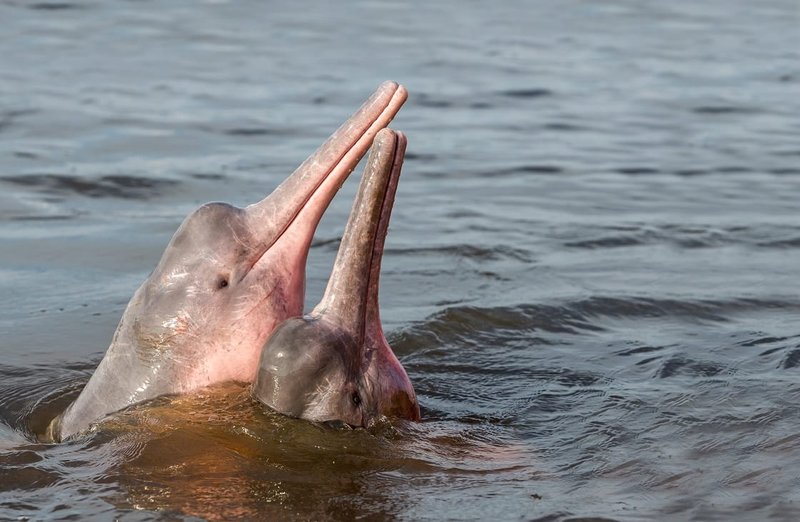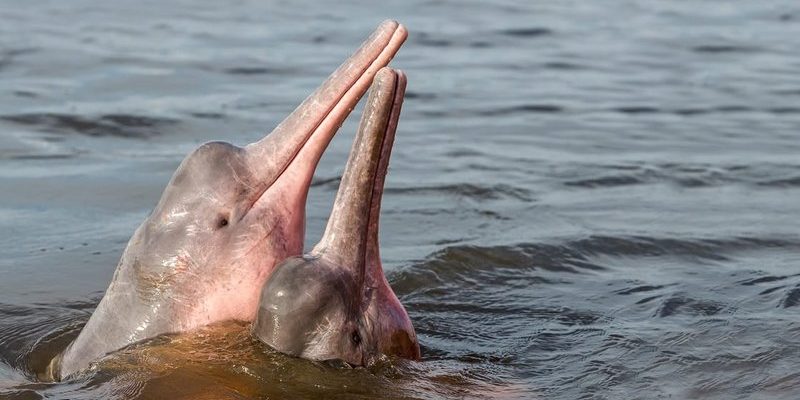
River dolphins, such as the Amazon river dolphin and the Yangtze river dolphin, offer a glimpse into a world that is both enchanting and delicate. They are remarkable creatures, but interacting with them requires understanding and respect. Let’s dive into everything you need to know about encountering these beautiful beings in their natural habitat.
Understanding River Dolphins
River dolphins are not your average marine mammals. Unlike their ocean-dwelling cousins, they have adapted to life in murky freshwater environments. Here are some key points that set them apart:
- Species Variety: There are several species of river dolphins, including the Amazon river dolphin, the Ganges river dolphin, and the rare Yangtze river dolphin. Each has its own distinct characteristics.
- Physical Traits: River dolphins often have a more elongated snout, smaller dorsal fins, and a thinner body compared to ocean dolphins. Their colors can range from gray to pink, depending on the species.
- Habitat: They primarily inhabit rivers, lakes, and sometimes coastal waters, surrounded by dense vegetation, making them somewhat elusive.
Now, you might wonder why these dolphins are so special. River dolphins play a critical role in their ecosystems, acting as indicators of the health of freshwater environments. Sadly, many species are endangered due to habitat loss, pollution, and entanglement in fishing gear.
Stay Calm and Observe
So, you spot a river dolphin! Awesome! The first thing you should do is to stay calm. You’re in their territory, after all. Here’s how to handle the moment:
1. Keep Your Distance: It’s essential to maintain at least 50 meters (about 164 feet) of distance. River dolphins are known to be curious, but too close of an approach can stress them out.
2. Quietly Observe: Take a moment to watch and enjoy the experience. You might see them surfacing for air or even displaying playful behavior. Observing from a distance helps you appreciate their natural habits without interfering.
3. Use Binoculars: If you’re really keen on studying their behavior, bringing binoculars can enhance your experience. This way, you can watch them closely without intruding into their space.
You might think, “Why all this fuss about distance?” Well, river dolphins are sensitive creatures. Getting too close can disrupt their natural behaviors and breeding patterns. So, remember that your respect for their space is crucial for their well-being.
Documenting Your Encounter
If you’re lucky enough to encounter a river dolphin, you might want to document the moment. Here are some tips for doing that responsibly:
– Photography: Taking pictures can be a memorable way to capture the magic. However, make sure you’re not using flash, as it can startle the dolphins.
– Videos: A short video can also convey the experience beautifully. Just remember to keep it brief and avoid chasing them.
– Journal Your Experience: Take notes about what you observed. Was the dolphin active? Did it display any unique behaviors? Jotting this down can help you remember the encounter and share with others interested in river dolphins.
But let’s be honest: while capturing the moment is fantastic, nothing beats just being in the moment. So don’t let your camera distract you from experiencing the beauty of nature.
Respect Their Environment
When you’re out in nature, it’s not just about the encounter; it’s also about preserving the habitat these dolphins call home. Here are some ways you can contribute:
– No Littering: Always pack out what you bring in. Plastics and other debris can endanger river dolphins and their homes.
– Be Mindful of Noise: Loud noises can scare river dolphins away or disrupt their communication. If you’re in a boat, keep the engine quiet and speak softly.
– Support Conservation Efforts: Look for local organizations focused on protecting river dolphin habitats. Getting involved can help ensure these creatures thrive for generations to come.
By treating the environment with respect, you contribute to the preservation of not just river dolphins, but the entire ecosystem that supports them.
What Not to Do
While it’s fantastic to encounter a river dolphin, there are several actions to avoid. Here’s a quick list:
- Don’t Touch or Feed Them: Approaching too closely can stress the dolphin. Plus, feeding can harm their natural foraging instincts.
- Avoid Chasing: Dolphins may swim away if they feel threatened. Respect their choice to leave and move on.
- Don’t Swim with Them: While it may be tempting, swimming with river dolphins can be dangerous for both you and the dolphins.
This may sound a bit strict, but the goal is to ensure that your interaction is positive for both you and the dolphin. Remember, you’re a guest in their world.
Sharing Your Encounter
After experiencing a river dolphin encounter, you might feel compelled to share your story. Here’s why that matters:
– Raising Awareness: Sharing your experience can help educate others about the importance of river dolphins and their habitats. The more people know, the more likely they are to take action.
– Encouraging Responsible Behavior: Discussing what you learned can encourage friends and family to be respectful during their own wildlife interactions.
– Connecting with Others: You’ll find that many people share similar passions for wildlife, and by sharing your story, you might make new friends who appreciate the beauty of nature as much as you do.
Whether through social media, community groups, or even a local conservation event, your story can make a difference.
Encountering a river dolphin in the wild is an awe-inspiring experience that connects us to nature in a profound way. By understanding their behaviors, respecting their environment, and sharing our experiences, we contribute to preserving these remarkable creatures and their habitats.
So, the next time you find yourself near a river, keep your eyes peeled and your heart open. Who knows, you might just spot one of these beautiful river dolphins swimming by, reminding us of the wonders of our natural world. Always remember: a little respect goes a long way in protecting our wildlife for future generations to enjoy.

